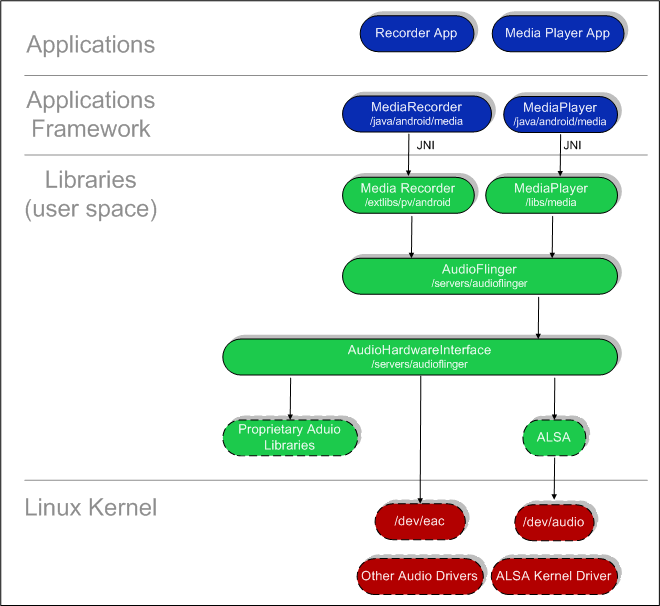AudioHardwareInterface serves as the glue between proprietary audio drivers and the Android AudioFlinger service, the core audio service that handles all audio-related requests from applications.

Building an Audio Library
To implement an audio driver, create a shared library that implements the interface defined in AudioHardwareInterface.h. You must name your shared library libaudio.so so that it will get loaded from /system/lib at runtime. Place libaudio sources and Android.mk in vendor/acme/chipset_or_board/libaudio/.
The following stub Android.mk file ensures that libaudio compiles and links to the appropriate libraries:
LOCAL_PATH := $(call my-dir)
include $(CLEAR_VARS)
LOCAL_MODULE := libaudio
LOCAL_SHARED_LIBRARIES := \
libcutils \
libutils \
libmedia \
libhardware
LOCAL_SRC_FILES += MyAudioHardware.cpp
LOCAL_CFLAGS +=
LOCAL_C_INCLUDES +=
LOCAL_STATIC_LIBRARIES += libaudiointerface
include $(BUILD_SHARED_LIBRARY)
Interface
Note: This document relies on some Doxygen-generated content that appears in an iFrame below. To return to the Doxygen default content for this page, click here.
